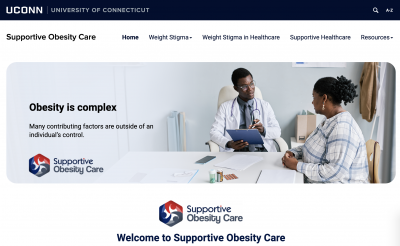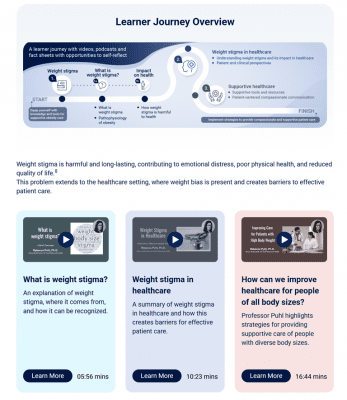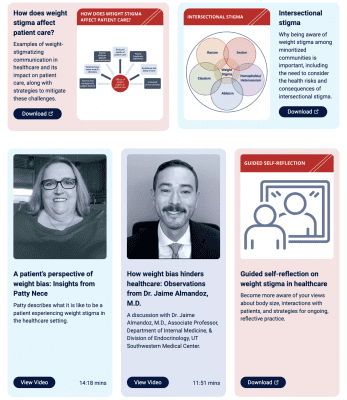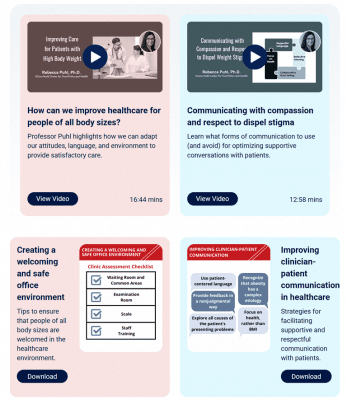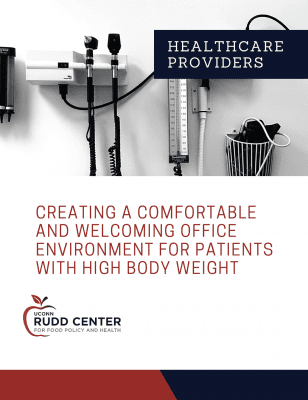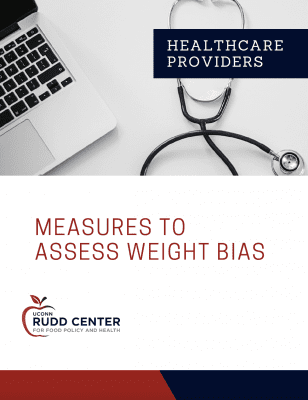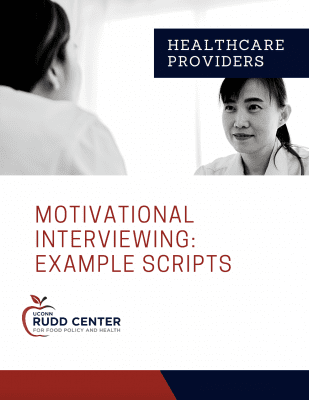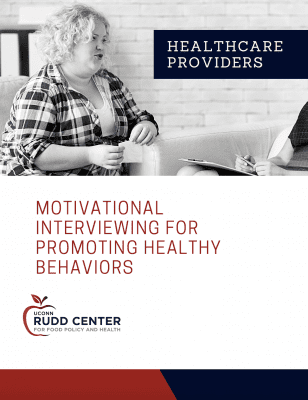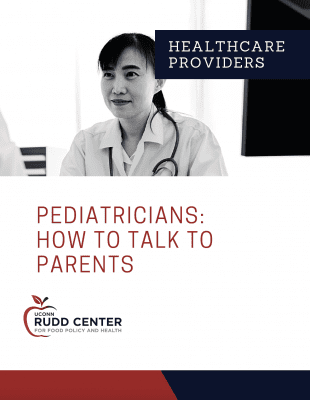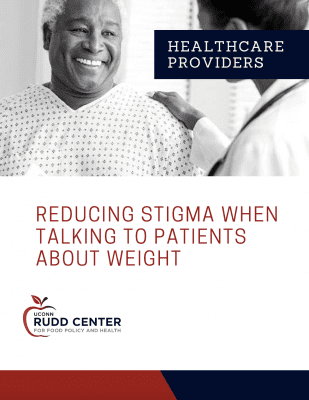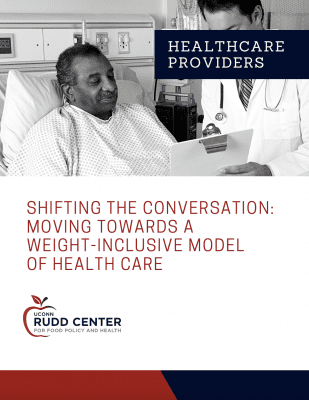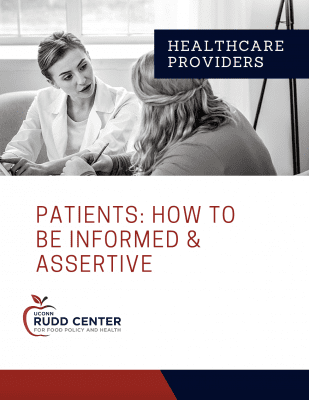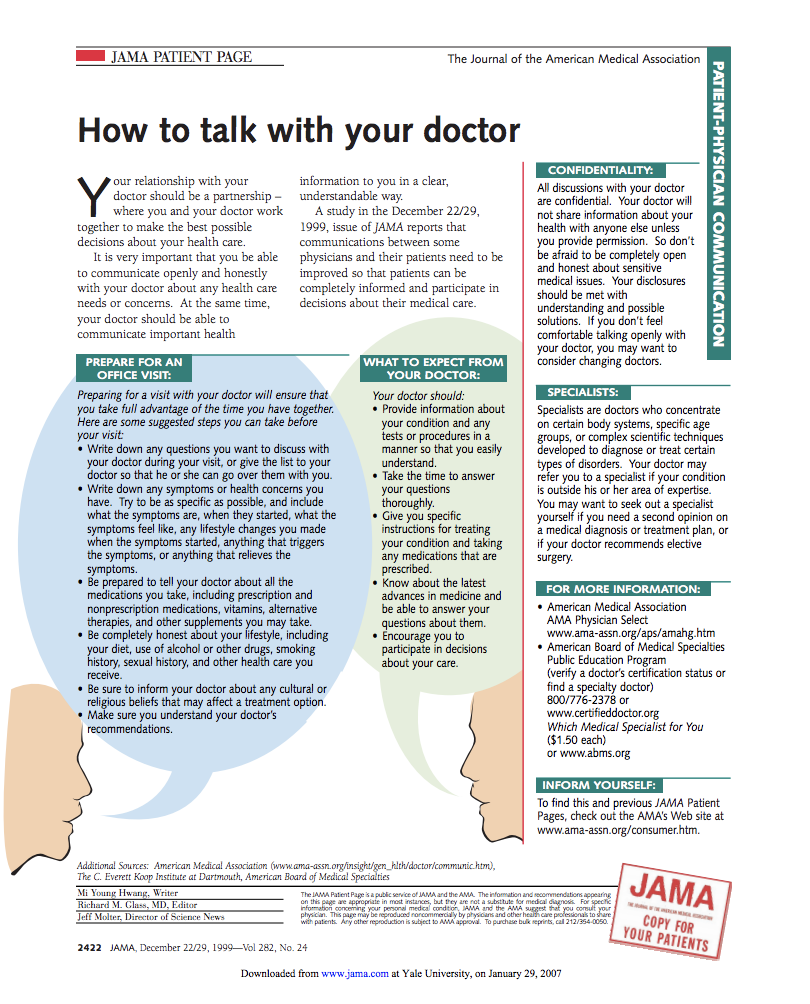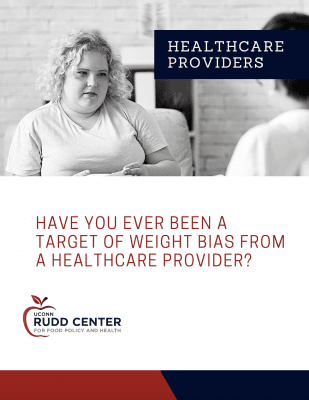Healthcare Providers
Weight bias is present in healthcare, which is harmful to patients and creates barriers to effective patient care. Some healthcare professionals express weight-biased attitudes and stereotypes that people with higher weight are lazy, lacking in willpower, unmotivated to improve their health, and noncompliant with treatment. Many patients with higher weight report being stigmatized by healthcare professionals, including physicians, nurses, psychologists, dietitians, and other medical providers. When patients feel judged or stigmatized about their weight, this can lead to lower trust of their healthcare providers, poorer quality of care, and avoidance of healthcare.
To equip healthcare professionals with knowledge and tools to provide more respectful, supportive, and compassionate care to patients of all body sizes, the Rudd Center has developed a free educational resource titled Supportive Obesity Care.
The Supportive Obesity Care website, which was created in collaboration with Eli Lilly and Company, aims to raise awareness of how weight stigma manifests in the healthcare setting, educate clinicians about the damaging effects of weight stigma on patients, and offer practical strategies that are applicable in everyday clinical practice to improve supportive patient care. We invite you to use and share the educational videos, podcasts, and handouts throughout this website.
Resources
For Healthcare Professionals
The Supportive Obesity Care website, which the Rudd Center created in collaboration with Eli Lilly and Company, is a free educational resource for clinicians. Throughout our collection of evidence-based educational videos, podcasts, handouts, and resources, we offer strategies to improve healthcare delivery to patients of all body sizes and reduce weight bias in clinical care:
Additional resources that provide education and training on weight stigma include the following:
Obesity Canada created a free course that dives into the complexities of weight bias and stigma. This comprehensive program explores the effects of societal attitudes toward body weight, highlighting the emotional, physical, and psychological toll it takes on individuals, societies, healthcare professionals, and communities.
Created by the Strategies to Overcome and Prevent (STOP) Obesity Alliance, this resource equips physicians with tools and strategies for building a safe, trusting environment with patients and facilitating productive conversations about weight.
For Pediatric Clinicians
Educational Presentations
Video: Weight Bias in Healthcare
In this video, Professor Rebecca Puhl provides a summary of weight stigma in healthcare and how this creates barriers for effective patient care. This resource can be found on the Supportive Obesity Care website - a collection of educational videos, podcasts, and handouts designed for use by healthcare professionals.
Video: Understanding Weight Stigma and Strategies to Improve Patient Care
This video combines content from several videos on the Supportive Obesity Care website, providing a comprehensive overview of weight stigma, its impact on health, and strategies to reduce weight bias in patient care. This longer video (55:12) is appropriate for educational purposes in courses, seminars, staff training, and Grand Rounds presentations.
